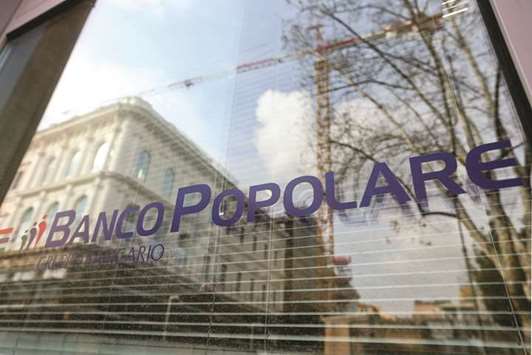Banco Popular Espanol has sold a group of assets that were pressuring the struggling Spanish lender’s capital levels.
The bank offloaded treasury shares, along with additional Tier 1 notes issued by itself and other lenders, according to people with knowledge of the sales, who asked not to be identified because they’re not authorised to talk about the matter. A spokesman for the bank confirmed the cancellation of capital deductions previously tied to the AT1s. He declined to comment on the terms of the sale.
“It may buy them a bit of extra time,” said Carlo Mareels, a London-based strategist at Mitsubishi UFJ Financial Group. “But it will cost them money as these are quite likely sold at a loss.”
Chairman Emilio Saracho is pulling out all the stops to stabilise Banco Popular and find a buyer for the Madrid-based lender as its decade-old crisis comes to a head. Spain’s sixth-largest bank is struggling to stay afloat after losses on soured real estate loans made before the global financial crisis, which have already forced it to raise new capital from shareholders three times in the last five years.
Banco Popular held 118.6mn shares in itself at the end of 2016, valued at €190mn ($212mn) based on the average price paid for them, according to its annual report. The treasury shares were probably sold at a loss because market prices this year have averaged about half the bank’s average purchase price.
The lender sold most of its holdings of AT1s, including notes issued by itself and other banks, the people said. The bonds caused a capital deduction of 158mn euros at the end of last year, they said.
Banks must take a deduction for the maximum amount of AT1s they’re authorized to buy regardless of the amount they actually hold, according to Julien Brune, the co-head of capital structuring at Societe Generale. Lenders can ask regulators to lower the amount they are allowed to buy, he said.
Banco Popular’s €750mn of 8.25% AT1 notes pared losses, and were down six cents on the euro at 61 cents after touching a record low 56¢, according to data compiled by Bloomberg. The bank reassured investors last week that it will pay a July coupon on its riskiest bonds after the notes tumbled on speculation losses may be imposed on the debt to preserve financial reserves.

The Banco Popolare logo is seen on a window at one of the company’s bank branches in Rome. Banco Popolare offloaded treasury shares, along with additional Tier 1 notes issued by itself and other lenders, according to people with knowledge of the sales.
